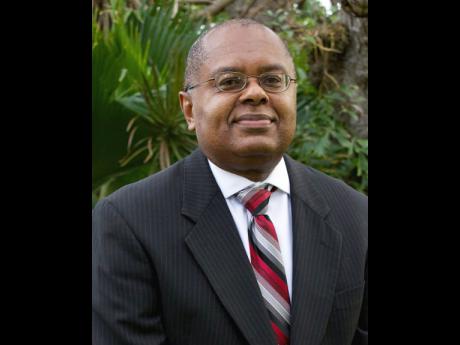Earth Today | Small islands advised to ‘negotiate hard’ for concrete actions at upcoming climate talks
WITH MERE weeks to go before this year's global climate talks in Poland, small island developing states (SIDS) are advised to ready themselves to "negotiate hard" for decisions that can translate the results of the Special Report on 1.5 degrees Celsius of global warming.
This is the word from former sustainable development minister for Saint Lucia, Dr. James Fletcher, who was at the forefront of negotiations on climate change for his island and others of the Caribbean Community.
"SIDS and other climate-vulnerable countries must lobby and negotiate hard for a series of COP (Conference of the Parties to the United Nations Framework Convention on Climate Change) decisions that translate the results of the Special 1.5 Report into a series of mandated actions by developed countries and big emitters of greenhouse gases, in the shortest possible time, to reduce the atmospheric levels of carbon dioxide and other greenhouse gases in the atmosphere," he told The Gleaner.
"That is paramount. We keep saying that it cannot be business as usual; the report shows why business as usual has deadly consequences for SIDS," added Fletcher, now a consultant on climate change and sustainable development issues for SIDS.
Among other things, the approved Summary for Policymakers (SPM) of the special report reveals that "risks to global aggregated economic growth due to climate change impacts are projected to be lower at 1.5 degrees Celsius than at two degrees Celsius by the end of the century. This excludes the costs of mitigation, adaptation investments and the benefits of adaptation".
Added the SPM: "Countries in the tropics and Southern hemisphere subtropics are projected to experience the largest impacts on economic growth due to climate change should global warming increase from 1.5 degrees Celsius to two degrees Celsius".
'Boost efforts to mainstream climate change'
Beyond also restarting the regional climate change advocacy campaign, Fletcher said that there is need to redouble efforts to ensure climate change mainstreaming in schools.
"Climate change must be incorporated into the syllabus at the primary and secondary school level and it should not be placed just in science subjects. Every child going through our school system must be made to understand the impacts that climate change is having and will have on their lives and what they can do to lessen the severity of some of these impacts," he noted.
"Every citizen in our region must understand what climate change means for their present and future development prospects. Our regional climate change advocacy campaign must be sustained and funding and technical support must be mobilised to facilitate this," Fletcher added.
Fletcher is also in favour of ensured cohesion and collaboration among regional organisations.
"Climate change is impacting the water sector, the tourism sector, the health sector, the energy sector, the agricultural sector, among others. The intensification of hurricanes will have negative consequences for the financial sector, the insurance sector, our education system, and most importantly, the economies of all of our countries," he said.
CONSENSUS
"There must be a regional consensus and a plan of action on how all of these sectors, led at the national and regional levels by the ministries and organisations that have responsibility for them, will work individually and collectively to mitigate the impacts of climate change, and also, how they will use their respective spheres of influence to change harmful attitudes and practices. The Caribbean Community Climate Change Centre should play a leading role in this important initiative," Fetcher added.
Meanwhile, he said the gains represented by the special report for which a SPM was approved last month at the 48th session of the Intergovernmental Panel on Climate Change were simply too important to do otherwise.
"It provides strong scientific data that confirms the position SIDS have long held that 1.5 degrees Celsius is the absolute threshold for global warming for SIDS and low-lying countries. During the negotiations on the Paris Agreement, one of the counters we would often get to our position that 1.5 degrees C should be the long-term temperature goal was that there was insufficient scientific evidence to support our claim," he noted.
"While this was not entirely true, we recognised that the only way to put this argument to rest was to have the scientific community assess the impacts of 1.5 degrees versus other warming scenarios. The results of the Special 1.5 Report demonstrate unequivocally that not only were SIDS absolutely correct in our position, but that the situation is even more serious than we had feared," Fletcher added.


